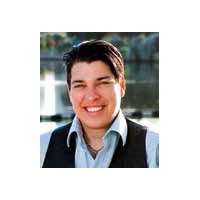
By Rebecca Kaplan, Oakland City Councilmember At-Large–
On July 6, 2020, the City of Oakland began hosting panels of the AIDS Memorial Quilt to hang on the front of Oakland City Hall. The AIDS Memorial quilt has more than 100,000 names stitched in remembrance of loved ones who have been lost to AIDS. Panels are hung in cities such as San Francisco, Washington, D.C., and now Oakland.
As of July 14, over 135,000 lives have been lost to COVID-19 in the U.S., and over three million have been stricken with the disease with ever-expanding and serious, yet lasting, after-effects.
These two pandemics, HIV/AIDS and COVID-19, have so much to teach us about the value of science, compassion, and community. HIV/AIDS was ignored by public officials until many lives were lost, and prejudice played a major role in the failure to take the disease seriously. As with HIV/AIDS, the public bears the brunt of the mixed messaging about COVID-19, the worst of which comes from the White House. This confusion places our community and our country in danger that is devastating.
As we remember and honor those lost to HIV/AIDS, let us also learn and utilize the lessons of that experience. HIV is not over, and continues to threaten lives and health in our communities. We need to continue to protect our communities and each other, while also doing more to respond to COVID-19.
To successfully respond to the coronavirus pandemic, we need to respect science, make sure prejudice doesn’t undermine our response, and take steps to protect and value our entire community. With both COVID-19 and HIV, using protection has been proven to be effective and important.
Masks and condoms can work to help prevent the spread of disease. Political discomfort and other refusals to support masks and condoms, and macho posturing, have caused some to hold back on recommending the use of these protections, which costs lives. And the harms of prejudice and discrimination, along with the dangers of mass incarceration, worsen our nation’s response to disease prevention.
As the COVID-19 pandemic disproportionately affects our Black Community, we realize the inequities with the current system that have historically been shown in our fight against AIDS. While 13.4% of the American population is Black, over 38.1% of people who are incarcerated are Black and over 40% of people who are living with HIV in the U.S. are Black.
(Data at https://www.bop.gov/about/statistics/statistics_inmate_race.jsp and https://bit.ly/3f8WmhQ )
The correlation between high rates of HIV among Black populations in the U.S. can be partially attributed to mass incarceration due to the high number of Black Americans who are imprisoned and the lack of access to prevention programs and treatment in these spaces. And anti-gay discrimination, prejudice, and silencing vastly exacerbated the spread of HIV, and the hesitation of national leaders to respond timely to AIDS.
Let us not take these as signs to give up, but rather, let us learn the lessons as we honor those we lost. As a community we can fight back and support sanity, science, and healthier community response.
For more information regarding the NAMES Project AIDS Memorial Quilt: https://bit.ly/2X3u1n3
Councilmember At-Large Rebecca Kaplan was elected in 2008 to serve as Oakland’s citywide Councilmember; she was re-elected in 2016. She also serves on the Alameda County Transportation Commission (ACTC). Follow Councilmember Kaplan on Twitter @Kaplan4Oakland
( https://twitter.com/Kaplan4Oakland ) and Facebook
( https://www.facebook.com/Kaplan4Oakland/ ).
Published on July 30, 2020
Recent Comments